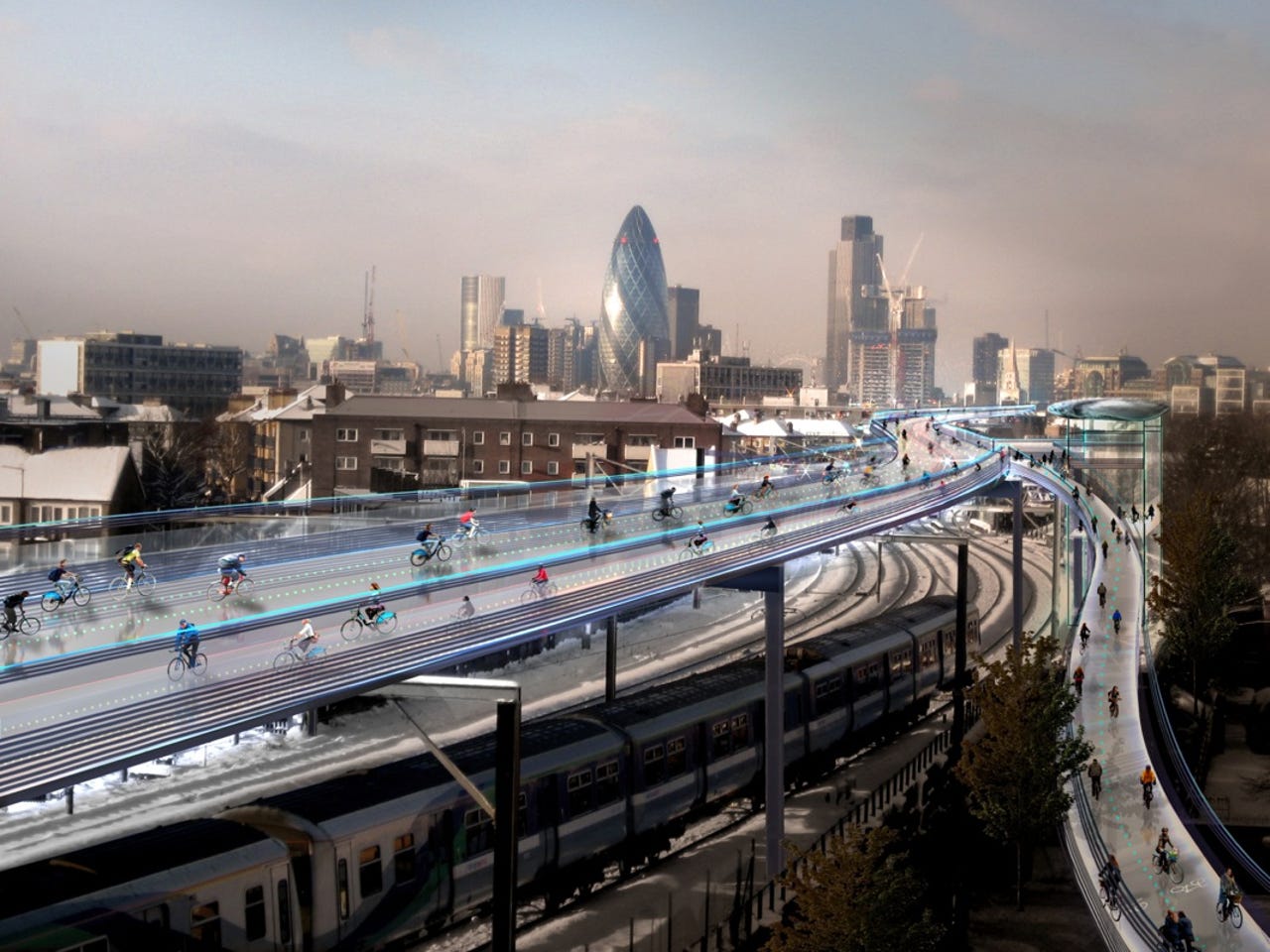Innovation
Why your city doesn't need an elevated bicycle highway
London's proposed bicycle highway is impressive. But does it make sense for London and other cities?


Cyclists in cities around the world dreamed of what the car-free "cycling utopia" might look like in their cities. But is a bicycle highway something that cities should aspire to bring to their residents?
Tim Stonor of Space Syntax, Ltd., the company that designed London's elevated bike highway, argues that it's a necessary solution for London. "In London, this project exists because the street network has a limited capacity," Stonor told Quartz. But Stonor says that the main reason for building elevated bike highways shouldn't be to separate cyclists from cars.
The problem? Elevating a bike lane isn't so different from the issues that come from elevating a car highway through a city.
One of the main downsides for elevating highways is an economic one, as Mary Lauran Hall, communications director at the Alliance for Biking & Walking, told SmartPlanet.
"You have all of these economic benefits from street-level bicycle infrastructure," Hall said. "Building high would mean missing out on those economic benefits."
In a new report, the Alliance for Biking & Walking makes the business case for protected, street-level bike lanes. A case study in San Francisco showed that when the city decreased the number of car lanes, added bike lanes, and widened sidewalks on Valencia Street, two-thirds of shop owners along the street said the change boosted sales, while only four percent said it hurt sales.
Still, London (and other cities that have proposed elevated bicycle highways) aren't exactly rushing to build. Even though London Mayor Boris Johnson originally said he loved the idea when he first revealed that the city was studying the concept in 2012, his thinking has since shifted. On a radio show earlier this month the mayor said:
"It would be fantastically expensive. I don’t actually think as a cyclist it is what the city needs. What we need is more safety measures, we need better roads, we need better protection for cyclists of all kinds, we need better investment in our streets and that’s what we’re doing, and better education for cyclists and lorry drivers."
Photo: Foster + Partners
This post was originally published on Smartplanet.com